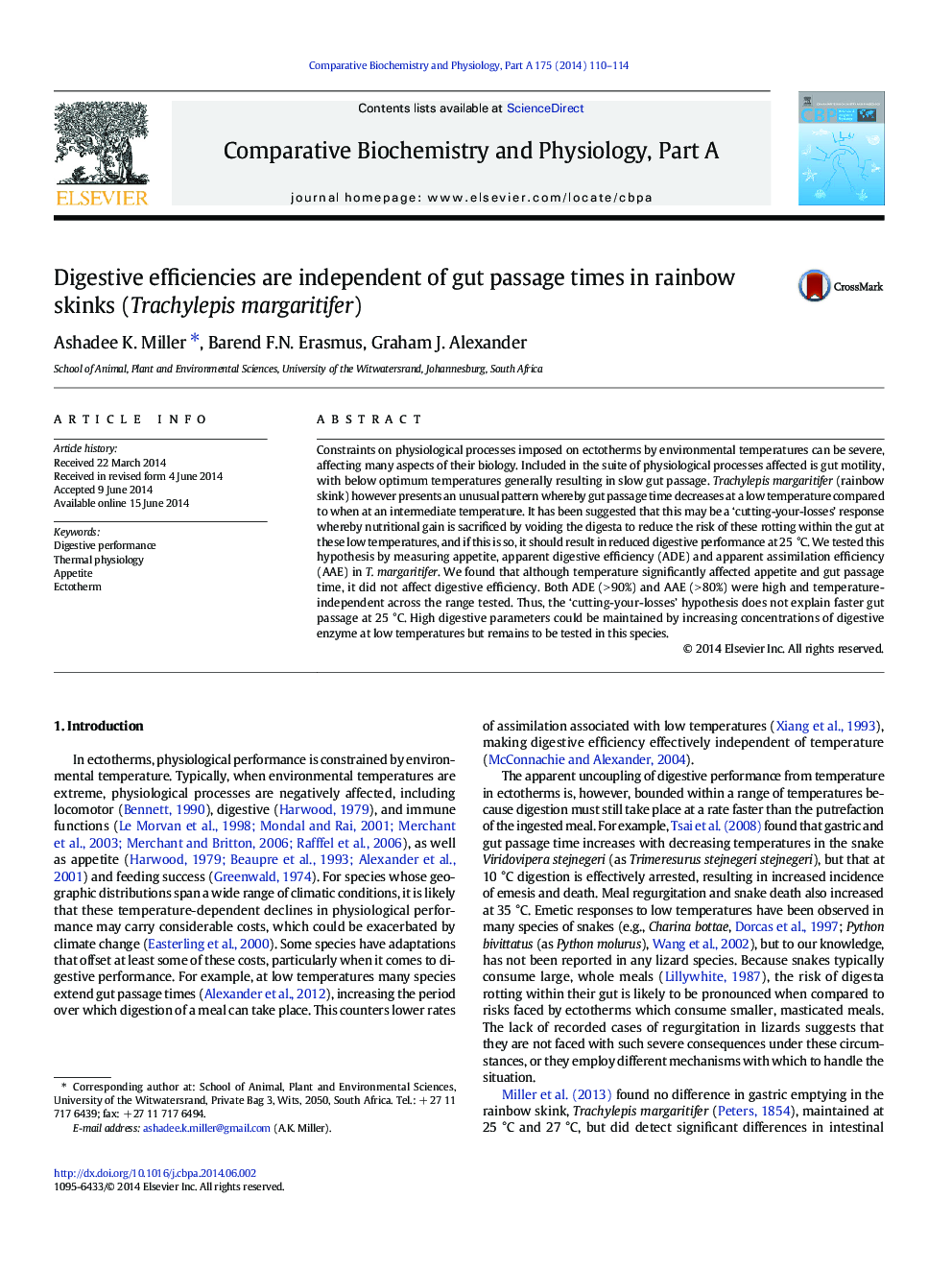| Article ID | Journal | Published Year | Pages | File Type |
|---|---|---|---|---|
| 8318632 | Comparative Biochemistry and Physiology Part A: Molecular & Integrative Physiology | 2014 | 5 Pages |
Abstract
Constraints on physiological processes imposed on ectotherms by environmental temperatures can be severe, affecting many aspects of their biology. Included in the suite of physiological processes affected is gut motility, with below optimum temperatures generally resulting in slow gut passage. Trachylepis margaritifer (rainbow skink) however presents an unusual pattern whereby gut passage time decreases at a low temperature compared to when at an intermediate temperature. It has been suggested that this may be a 'cutting-your-losses' response whereby nutritional gain is sacrificed by voiding the digesta to reduce the risk of these rotting within the gut at these low temperatures, and if this is so, it should result in reduced digestive performance at 25 °C. We tested this hypothesis by measuring appetite, apparent digestive efficiency (ADE) and apparent assimilation efficiency (AAE) in T. margaritifer. We found that although temperature significantly affected appetite and gut passage time, it did not affect digestive efficiency. Both ADE (> 90%) and AAE (> 80%) were high and temperature-independent across the range tested. Thus, the 'cutting-your-losses' hypothesis does not explain faster gut passage at 25 °C. High digestive parameters could be maintained by increasing concentrations of digestive enzyme at low temperatures but remains to be tested in this species.
Keywords
Related Topics
Life Sciences
Biochemistry, Genetics and Molecular Biology
Biochemistry
Authors
Ashadee K. Miller, Barend F.N. Erasmus, Graham J. Alexander,
